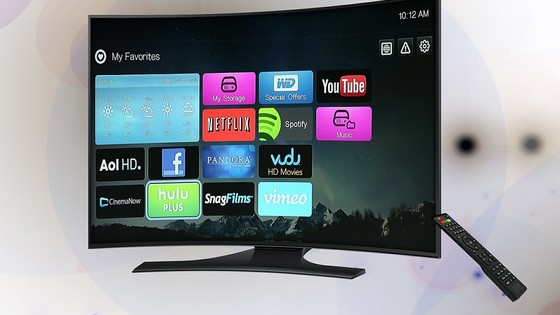Too much TV?
Nowadays it is possible to watch your favourite programmes, series or films not only on TV, but also on your computer or smartphone. Does this mean that you spend too long in front of a screen? Do you choose what to watch in a critical and selective way? In this section, we want you to reflect on your own and your classmates' viewing habits.
At the end of this section, you will have...
- Read about unhealthy lifestyles.
- Revised and learnt vocabulary related to free time activities.
- Listened to a conversation.
- Revised and learnt adjectives to describe TV programmes.
- Prepared and asked a questionnaire on people's viewing habits.
Enter the elllo.org site and listen to several people talking about how much TV they watch. With a partner, speak about how long you both spend in front of a TV set.
A person who spends too much time watching TV while sitting on a sofa is called a couch potato. Read the tips to avoid being a couch potato on the Writing Wizard web site. With your partner, comment on activities that you both do in your free time and give them a score. Enter the free time activity worksheet and get some ideas. For example, sleeping is zero and running, 10. After checking the score based on the activities that your partner and you have chosen, do you think you are 'couch potatoes'?
A couch potato is the opposite of someone who is energetic and physically healthy. Enter the worksheet entitled A generation of couch potatoes and take a quiz on how active you are..Then, read the text in the worksheet and develop your reading comprehension by answering to the questions provided.
Discuss with your class-group about your lifestyles.
- Do you think you have a healthy lifestyle?
- What activities do you usually do to be fit?
At home, ask some members in your family and calculate the total amount of hours that they spend watching TV. Who in your family spends the most time in front of the TV set?
Sign in at Canva and draw two columns with the headings I could.... and My relatives could...Write under each heading activities that you and your relatives could take up to be physically fit.
Share the link to your chart with your classmates on Pinterest . Do not forget to accompany a picture to illustrate your post. Publish the chart on the page entitled 'My digital Resources' in your Weebly site.


